World's slowest mammal makes long-overdue debut at Longleat
- Published
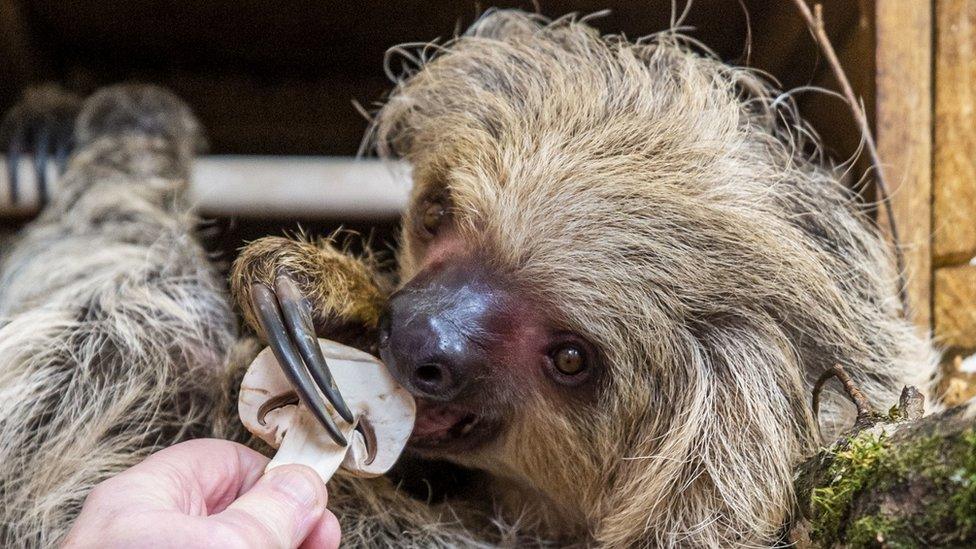
The two-toed sloth is believed to be the slowest mammal in the world
The world's slowest mammal has made its long-overdue debut at Longleat Safari Park in Wiltshire.
Truffles is a 22-month-old female Linnaeus two-toed sloth and she has moved into a purpose-built display at the safari park's Jungle Kingdom.
The South America animals sleep for about 15 hours a day and move so slowly that algae grows on their fur.
They move as little as 40m (130ft) a day and can spend up to a month digesting a meal.
As sloths spend virtually their entire time living upside down in trees, the new display area features a series of interconnected ropes and branches.
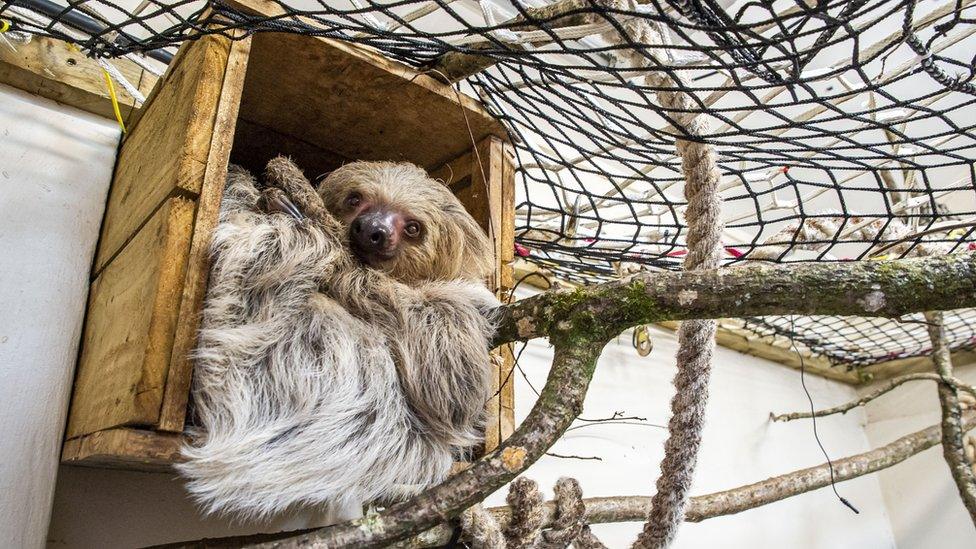
Two-toed sloths are usually found throughout the rainforests of South America
It is the first time Longleat has looked after a sloth and Truffles' keeper, Gemma Short, has been caring for the creature in its new home.
"We have had to create a miniature tropical rainforest for Truffles with high temperatures and humidity as she cannot regulate her temperature herself so relies on the environment around her," said Ms Short.
"We're also having to chop her food into long chips so she can hold them with her claws. Her favourite foods include baby corn, sweetcorn, mushrooms and parsnip."
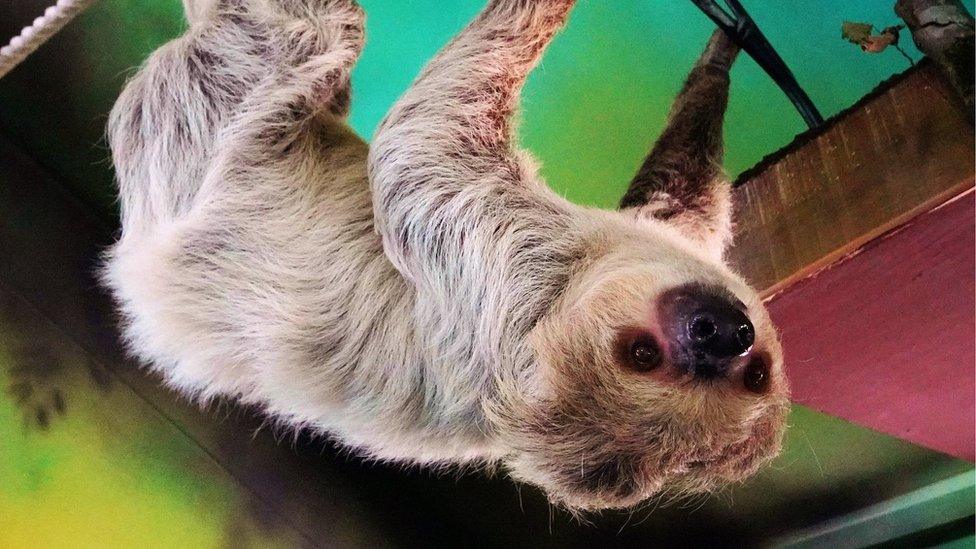
Sloths spend virtually their entire time living upside down in trees
The algae that grows on their fur acts as a natural camouflage to hide them from potential predators including jaguars, anacondas, and harpy eagles.
They are most at risk when they descend to the ground, where they can take more than a minute to move two metres (6.5ft).
Because they need to leave the trees to go to the toilet, they have developed high-capacity bladders and rectums, which mean they can go for up to a week without having to answer the call of nature.
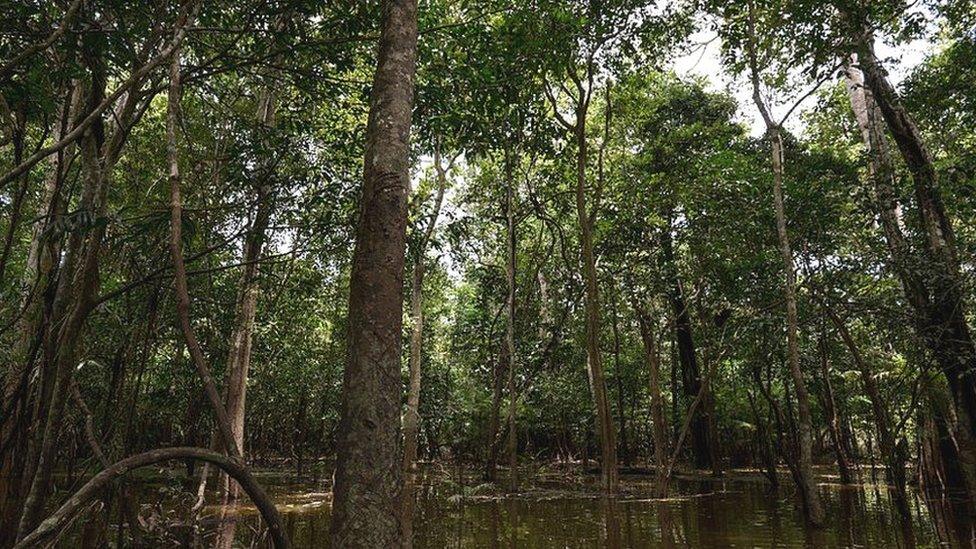
Sloths munch on leaves, twigs and buds in their natural habitat, such as he Amazonian rainforest of Brazil
Despite their sedate lifestyle, sloths are extremely good swimmers and will sometimes drop from branches into the water to swim to a new location. Their slow metabolism also means they can hold their breath for up to 40 minutes.
Naturally solitary animals, they live between 20 to 40 years and their main threat is loss of habitat due to logging and rainforest clearance.
Keepers are hoping to find a mate for Truffles in the future.

Follow BBC West on Facebook, external, Twitter, external and Instagram, external. Send your story ideas to: bristol@bbc.co.uk , external
Related topics
- Published30 March 2022
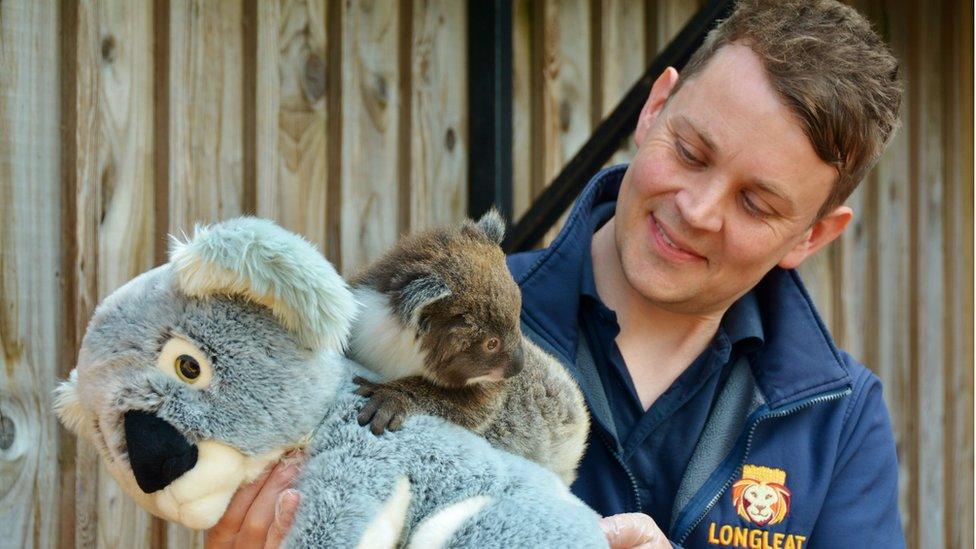
- Published22 June 2022
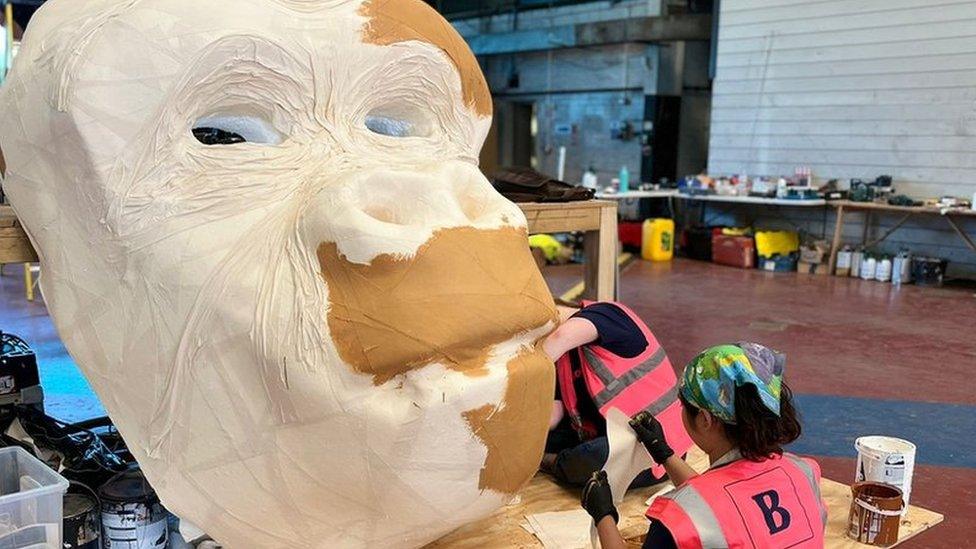
- Published14 June 2022
